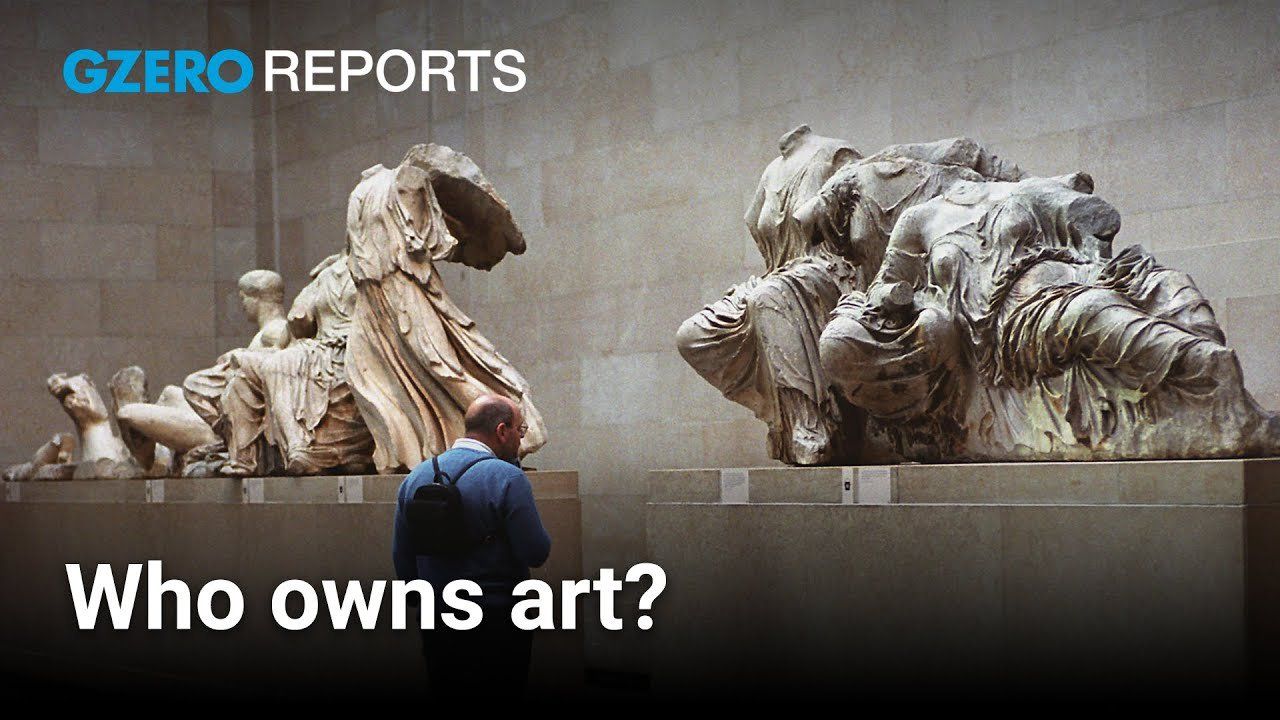GZERO Reports
The Parthenon Marbles dispute and the debate over cultural repatriation

The Parthenon Marbles dispute and the debate over cultural repatriation | GZERO World

Who gets to claim art as their own? It’s a complicated issue, and elite art institutions are undergoing a reckoning over their Indiana Jones-style acquisition tactics of the past. GZERO’s Alex Kliment explores the complex debate of art repatriation and the controversy surrounding ancient artifacts displayed in Western museums. One of the most infamous cases involves the Parthenon Marbles (sometimes called the Elgin Marbles) at the British Museum, which the British took during Ottoman rule. The Greeks have been demanding the Marbles be returned for almost 200 years.
“I think this is really a moral or ethical case,” says Leila Amineddoleh, an art repatriation expert, “Should museums hold onto objects that were taken under either violent circumstances or were taken during a time of looting, theft or when a country was colonized?”
This question of who owns art has become more intensely political in recent years. On one side are the defenders of the “Universal Museum” idea, who say it’s important to have places where everyone can come see art from all over the world in one place. However, critics argue it’s a form of cultural imperialism that denies rightful ownership to the people who created the artifacts in the first place. Ultimately, the debate raises broader questions about museums' responsibility to address historical injustices, balance cultural preservation with global accessibility, and navigate the complex dynamics of ownership and cultural heritage.
Cybercrime is no longer just an IT issue – it’s an economic one. New research from the Mastercard Economics Institute shows how digital attacks can disrupt supply chains, shift consumer behavior, and ripple through GDP. After ransomware attacks on Asahi Group and Colonial Pipeline, anonymized spending data revealed stockpiling, shortages, and sustained shifts in purchasing patterns. As threats grow more sophisticated, strengthening cyber resilience and public-private collaboration will be critical to economic stability. Read the full analysis here.
Think you know what's going on around the world? Here's your chance to prove it.
$90 billion: The amount of revenue that Russia has reportedly made from smuggled crude oil exports, after 48 companies worked together to help disguise the origin of the oil and circumvent sanctions that have been imposed since the full-scale war on Ukraine began.
People in support of former South Korean President Yoon Suk Yeol rally near Seoul Central District Court in Seoul on Feb. 19, 2026. The court sentenced him to life imprisonment the same day for leading an insurrection with his short-lived declaration of martial law in December 2024.
65: The age of former South Korean President Yoon Suk Yeol, who was sentenced to life in prison on Thursday after being found guilty of plotting an insurrection when he declared martial law in 2024.